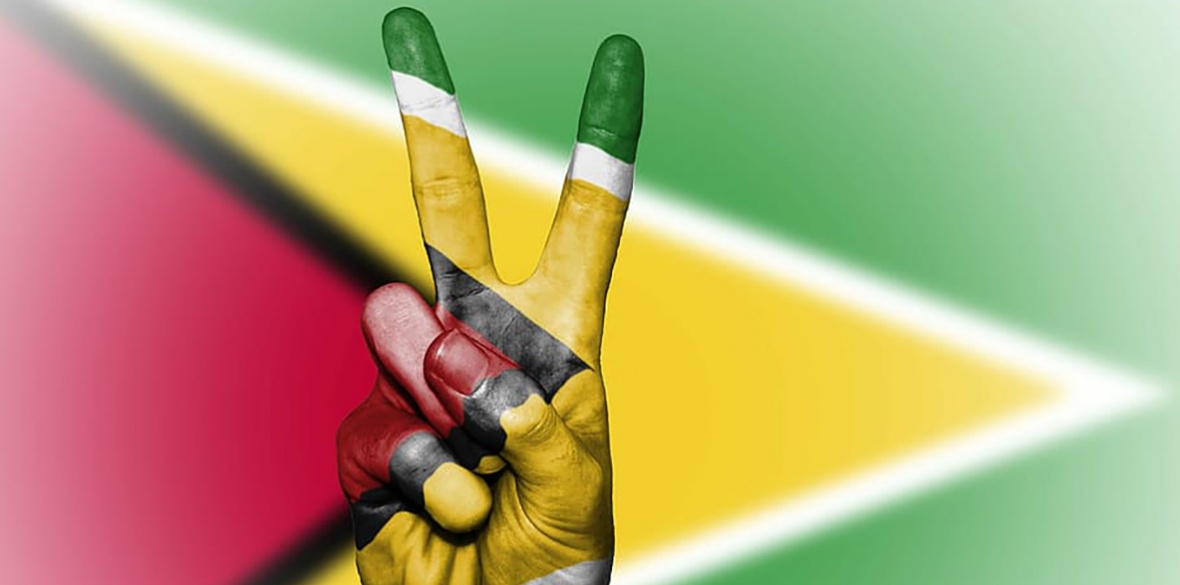This is the last article you can read this month
You can read more article this month
You can read more articles this month
Sorry your limit is up for this month
Reset on:
Please help support the Morning Star by subscribing here
AFTER four months of procrastination, recounts and court challenges, the chairman of the Guyana Elections Commission (Gecom) seemed ready to declare that the opposition People’s Progressive Party/Civic (PPP/C) had won the snap election that took place on March 2.
This was an election mired in controversy, and the Caribbean Community (Caricom) team of observers travelled to Guyana several times to press the government to accept the outcome. The governing APNU (A Party of National Unity), a coalition led by President David Granger, was reported to have finally conceded defeat and declared it would respect the decision of Gecom.
But hold it: the saga is not over yet. There is now talk of a legal challenge as, apparently, the government is not about to give up power.
Election results in Guyana have largely been determined by race since the time that Britain invaded the country, then British Guiana, in 1953 and suspended the constitution after a mere 133 days of the Marxist-led PPP government of Cheddi Jagan and engineered the installation of the People’s National Congress (PNC) government led by Forbes Burnham.
After independence and a 25-year term in office, thanks to rigged elections, the PNC eventually yielded to political pressure for fair and free elections, which saw the PPP/C come to power in 1992.
After 23 years in office the PPP/C lost the 2015 election, partly because of accusations of massive corruption, abuse of power, racism and a breakaway from the PPP/C to form the Alliance for Change (AFC), which split the Indian-Guyanese vote.
This was seen as a breakthrough election: finally racial voting had been cracked by Indian-Guyanese and African-Guyanese coming together to form a government. That hope was short-lived, as APNU struggled to clear up the mess of years of PPP/C corruption and neglect of the infrastructure of the capital, Georgetown.
A failure to deliver on the high expectations of the electorate and a collapse of support for its coalition partner AFC cost it the elections.
Veteran Guyanese politicians Eusi Kawayna and Moses Bagwan have renewed calls for a government of national unity. Nothing new in this; all the parties at one time or another have called for some sort of unity government. Granger reiterated a willingness to form a unity government — a repeat of what he proposed after winning the 2015 election — should he be declared winner.
The PPP/C again declined the offer. It has no need for coalition politics; the demographics are on its side in this racially divided country. The Indian-Guyanese birth rate continues to outstrip that of other races, so it is just a matter of time before winner-takes-all politics and race-based voting delivers victory after victory at elections.
The signs for unity government are not good, as the PPP/C general secretary and ex-president Bharrat Jagdeo gave the suggestion of power-sharing short shrift: “I, personally, would not like to work with some of these people in any form, whether it’s executive power sharing or not.”
The PPP/C presidential candidate Dr Irfaan Ali did not stray far from that line: “There is no model that tells you executive power-sharing is superior to any other aspect of any inclusion.”
He went on to stress to reporters that what is important is how the party governs and that all the resources of the country be spent on all Guyanese. Pressed on power-sharing, he said: “I support moving forward together in an inclusive manner.”
There is scant trust between the parties, and cries of witch-hunts by the PPP/C, after the APNU government went after billions of Guyanan dollars said to have been stolen from the public coffers, according to Professor Clive Thomas, a respected economist and Working People’s Alliance (WPA) leader, left a bad taste.
There was also the problem of a high-end housing estate developed with taxpayers’ money for elite PPP/C leaders. Accusations of racism with the appointment of an all-Indian ambassadors’ team and with most high-level positions in the country going to Indian-Guyanese, are another bone of contention.
The APNU government has had its own corruption scandals: the storage and procurement of prescription drugs, a failed attempt at charging for car parking in Georgetown and the controversial appointment of public officials to high office.
Despite promises of openness and accountability, the handling of negotiations about the oil and gas discovered offshore left much to be desired, with experts claiming that government was stitched up by the oil giants.
This is the time for radical change in the politics of Guyana, especially in the face of Covid-19, which will lead to severe hardship for the entire region. Only a socialist agenda can deliver for the masses.
Taking race out of the elections equation could lead to a return of the class-based politics of the late Dr Jagan. Winner-takes-all politics will never suffice in Guyana and can only lead to political violence in the future.
As tensions rise in the country, action is needed urgently. A unity government now would avert much suffering for future generations. Both parties need to compromise in the interest of the nation.
An interim government to pave the way for constitutional reform to enable power-sharing and then holding fresh elections on that basis might be a way forward for Guyana.
Luke Daniels is president of Caribbean Labour Solidarity.











